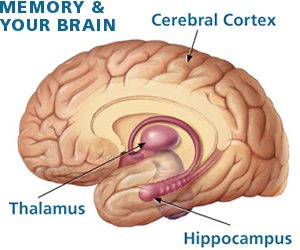Apr
28
2017
 Scientists like to be really sure. That is pretty much what the scientific method is all about – systematically controlling for all possibilities, all confounding factors, all variables and all alternative interpretations. We feel more confident when multiple lines of evidence converge on one explanation, and when rigorous attempts to disprove that explanation fail.
Scientists like to be really sure. That is pretty much what the scientific method is all about – systematically controlling for all possibilities, all confounding factors, all variables and all alternative interpretations. We feel more confident when multiple lines of evidence converge on one explanation, and when rigorous attempts to disprove that explanation fail.
I like seeing that process in action over specific claims, especially when the claim itself is interesting.
One such interesting question is, what was the earliest human presence in the Americas? Any question about first or earliest is always tentative in paleontology. It simply refers to our current evidence, but it is statistically unlikely that we will have found the literal earliest example of a species or an occupation. So conclusions about “earliest” are always changing, moving back as more evidence is found.
There is solid archaeological evidence for human occupation near the Bering Strait 14,000 years ago. There is strong but not universally accepted evidence for this occupation going back 24,000 years. So that is the current range of possible dates for the earliest presence of humans in North America.
Continue Reading »
Apr
27
2017
I recently wrote about the historical question of whether or not a person names Jesus existed and is the same person referenced in the New Testament. My bottom line conclusion was that the historical evidence is thin.
This post sparked an interesting conversation that brought out a lot of nuance, and also, I think, exposed some weaknesses in how I framed the original discussion. The comments are still very active, indicating there is a lot of interest in this question, so I wanted to reframe the discussion a bit and hopefully clarify my position.
Part of what I think happened, which happens frequently in my experience, is that people tend to assume your position falls within a preexisting camp. In the historicity of Jesus question there are two main camps, the mainstream position and the mythicist position. Therefore anyone saying anything to question the mainstream position is immediately accused of being a mythicist. Likewise, endorsing the mainstream position can be mischaracterized as endorsing Christianity.
Let me state my position up front and then go into more detail. First, I am not endorsing any of the mythicist positions. I do not think that any mythicist makes a strong positive case for their alternate hypothesis of how the Jesus story emerged.
Second, I understand the reasons that mainstream historians use to argue that it is more likely than not that Jesus existed. I simply think they are overstating their confidence and neglecting reasons to argue that we simply don’t know. Continue Reading »
Apr
25
2017
 I have been following the story of Homo floresiensis for the last decade, and it is fascinating. The remains of a diminutive humanoid were found on the island of Fores in Indonesia. The remains date to about 54,000 years ago. The findings immediately sparked debate, with two primary schools of thought emerging.
I have been following the story of Homo floresiensis for the last decade, and it is fascinating. The remains of a diminutive humanoid were found on the island of Fores in Indonesia. The remains date to about 54,000 years ago. The findings immediately sparked debate, with two primary schools of thought emerging.
The first hypothesized that H. foresiensis (nicknamed the Hobbit due to their small size) was a new species of hominin, likely evolve from H. erectus and displaying an example of island dwarfism. The second argued that the remains are not a new species at all and represent a pathological H. sapiens (modern human).
The two groups have argued back and forth in the scientific literature over the years. It is, in fact, a great example of the scientific method in action. Each group brought new evidence and a new perspective to bear, and had the burden of proof to demonstrate their hypothesis. They fought it out with science and evidence.
I and many others sat of the sidelines and watched the epic battle of science. I admit I was rooting for H. floresiensis, but we would all have to listen to the evidence, whatever it showed.
It’s also a good example of the limitations of mainstream science reporting. Each time a study was published, favoring one side of the debate or the other, it was reported as if the debate were finally over and now we know the answer. Instead they should have put that one study into context – this is just another round in an ongoing debate. The fight isn’t really over until one side concedes defeat and a consensus emerges. Even then, new evidence may trump the consensus, but at least we have a consensus rather than a controversy.
The New Study Continue Reading »
Apr
24
2017
 Did a man named Jesus from Nazareth exist in Judea around 2000 years ago proclaiming to be some kind of prophet? Of course this is a controversial question because of the massive implications for one of the world’s major religions.
Did a man named Jesus from Nazareth exist in Judea around 2000 years ago proclaiming to be some kind of prophet? Of course this is a controversial question because of the massive implications for one of the world’s major religions.
I do find it interesting to explore a basic factual question that is embedded in an intense ideological issue. It is a good way to explore what I think are the more interesting questions – the power of motivated reasoning, and how do we know anything historical.
I will also state that, even though this is not an atheist blog, I make no secret of the fact that I am an agnostic/atheist. I don’t think the historicity question has significant implications for atheism because it is entirely possible that the person Jesus existed but that Christian mythology is still just that, mythology. There were many prophets walking around the Middle East at that time. That one of them spawned a following that survives to this day is not surprising.
Two recent popular articles take opposite sides in this debate. The first is written by Dr Simon Gathercole in The Guardian, arguing that there is compelling evidence for Jesus. The second is written by Valerie Tarico in Raw Story and takes the position that the evidence for Jesus is weak. There has obviously been a lot written about this topic by many people, but these recent articles are decent summaries.
Which side has the stronger case?
Continue Reading »
Apr
21
2017
 Two recent neuroscience news items in The Independent represent exactly the problem with bad science journalism today and the tendency to overhype incremental studies.
Two recent neuroscience news items in The Independent represent exactly the problem with bad science journalism today and the tendency to overhype incremental studies.
Brain-Machine Interface
Here’s the first:
Device that can literally read your mind invented by scientists. An ‘easily operated’ machine linked to a smartphone could be ready within five years.
Um, no. I have be writing about this technology for years, because it is genuinely interesting and I think is a technology to watch. Several labs have made significant progress in brain-machine interfaces. The idea is that you read the electrical activity of the brain with either scalp electrodes or brain surface electrodes. Scientists have developed software that interprets the EEG patterns and learns to correlate them with the thoughts or intentions of the subject. The subject, in turn, learns to control their mental activity to affect the EEG output.
Here is where the technology stands: With brain surface electrodes, you get a much greater resolution of EEG activity. The software has progressed to the point that monkeys can control a robotic arm with sufficient subtlety to feed themselves.
With humans we have mostly used scalp electrodes, which have a more blurry signal. Even with these people have learned to control robots or control a cursor on a computer.
Continue Reading »
Apr
20
2017
 Patrick Burkhart and his colleagues recently published a review of their research on the cryosphere, which is a collective term for all the ice on the surface of the Earth. In addition to their review of the science, the new information they add is a photographic project documenting the retreat of glaciers around the globe.
Patrick Burkhart and his colleagues recently published a review of their research on the cryosphere, which is a collective term for all the ice on the surface of the Earth. In addition to their review of the science, the new information they add is a photographic project documenting the retreat of glaciers around the globe.
The retreat of the cryosphere is one of the many lines of evidence supporting the idea that the earth has been warming over the last half-century. There are several different ways to look at this. You can look at each pole to see the extent of ice coverage at their peak in winter and minimum in summer. You can look at specific ice sheets, like Greenland. You can look at glaciers. And you can look at total global ice, the cryosphere, which of course is the best single measure.
With regard to glaciers, the authors point out that there are many variables affecting the current size of any individual glacier. It is possible but difficult to account for all these variables and isolate one as a primary cause of melting. However, you can survey glaciers from around the world, which is a good way to control for local variables. When we do this we find there is a significant trend toward glacial retreat.
Continue Reading »
Apr
18
2017
 Alex Jones is famous for his Infowars program in which he, often red-faced and ranting, promotes all kinds of absurd conspiracy theories. He claims the Sandy Hook massacre was a “false flag” operation (and pretty much every similar event – all staged by the government. He claimed that Obama and Hillary Clinton were literally demons.
Alex Jones is famous for his Infowars program in which he, often red-faced and ranting, promotes all kinds of absurd conspiracy theories. He claims the Sandy Hook massacre was a “false flag” operation (and pretty much every similar event – all staged by the government. He claimed that Obama and Hillary Clinton were literally demons.
The enduring question (at least for me) has been – to what extent does Jones actually believe the stuff that he says? I phrase it that way because belief is not necessarily binary (I don’t want to commit a false dichotomy logical fallacy). He may believe some of the stuff he says to some extent, but then exaggerates and gets into speculation, or simply not care about the veracity of his claims.
Clearly he has a shtick and it’s paying off well for him.
I have not taken on Jones directly (I have addressed many of the claims he supports) because I haven’t found it to be worthwhile so far. His character is clearly a nutjob, to put it bluntly, and I suspected not entirely sincere, and overall I thought it best to ignore him.
Continue Reading »
Apr
11
2017
 The March for Science is coming up on April 22, which has prompted another round of – should science stay out of politics? I think this is a persistent debate because the answer is yes and no, depending on what you mean.
The March for Science is coming up on April 22, which has prompted another round of – should science stay out of politics? I think this is a persistent debate because the answer is yes and no, depending on what you mean.
Staying Out of Politics
There are several arguments for why scientists and science organizations should stay out of politics. The first is that politics and ideology can distort science. There are countless historical examples of this. You might call this “motivated research” which is similar to motivated reasoning.
Research can be directly toward an ideological agenda in many ways. Ideology can frame how we ask questions, which questions we think are important, and which research agendas get funding. Political beliefs can also shape how research is conducted, exploiting degrees of freedom and other methods to distort the process of research and the interpretation of results. It can also bias which research gets published and cited.
Every step of the way there is the potential for bias, and if that bias is consistently in one direction it is not difficult to manufacture an entire alternate reality of scientific evidence that supports your agenda. We see this with alternative medicine research in general. We see it with pharmaceutical company research which is much more likely to be favorable to the financial interests of the company. We see cultural biases, such as the uniformly positive studies of acupuncture in China.
Continue Reading »
Apr
10
2017
 There is something I never fully understood about memory, and now a new study might clarify my confusion.
There is something I never fully understood about memory, and now a new study might clarify my confusion.
The current model of how short and long term memory work is this. Short term memory is formed in the hippocampus and related structures. The hippocampus is highly plastic, it can change rapidly in order to form new real-time memories. However, this plasticity also has the necessary effect of causing recent memories to rapidly fade as they are overwritten.
Short term memory is actually limited in two ways, by the amount of information it can store, and duration. Studies vary in terms of how long short term memories last, but they all agree that it is from 15 seconds to 3 minutes. Measuring this is trickier than it may first seem, because people can “refresh” their short term memory by rehearsal, or from their long term memory, so you have to control for these factors.
There is also something called working memories, and there are varying concepts of exactly what this is. In essence working memory is short term memory that you are currently focusing on and manipulating. For example, if you do math in your head, you are using working memory.
Continue Reading »
Apr
07
2017

Pierre Omidyar, founder of eBay, is one of the world’s richest men. He recently announced that his philanthropic investment firm will dedicate $100 million to combat the “global trust deficit.” By this he means the current lack of trust in information and institutions born by the age of misinformation, fake news, and alternative facts.
I agree that this is a phenomenon that needs to be studied and tackled, but I hope that he is just getting started with the $100 million, because it’s going to take a lot more than that. I also don’t think we can rely on a few philanthropists to fix this problem.
As an aside I find it historically interesting that the internet boom lead to a crop of very young very rich people, not only Omidyar but also Bezos, Musk, Zuckerberg and others. Omidyar notes that:
“We sort of skipped the ‘regular rich’ and we went straight to ‘ridiculous rich’,” he said of his overnight fortune.
“I had the notion that, okay, so now we have all of this wealth, we could buy not only one expensive car, we could buy all of them. As soon as you realise that you could buy all of them, none of them are particularly interesting or satisfying.”
So we have a crop of young bored billionaires looking to change the world. I think that’s cool. I hope they succeed.
Continue Reading »
 Scientists like to be really sure. That is pretty much what the scientific method is all about – systematically controlling for all possibilities, all confounding factors, all variables and all alternative interpretations. We feel more confident when multiple lines of evidence converge on one explanation, and when rigorous attempts to disprove that explanation fail.
Scientists like to be really sure. That is pretty much what the scientific method is all about – systematically controlling for all possibilities, all confounding factors, all variables and all alternative interpretations. We feel more confident when multiple lines of evidence converge on one explanation, and when rigorous attempts to disprove that explanation fail.
 I have been following the story of Homo floresiensis for the last decade, and it is fascinating. The remains of a diminutive humanoid were found on the island of Fores in Indonesia. The remains date to about 54,000 years ago. The findings immediately sparked debate, with two primary schools of thought emerging.
I have been following the story of Homo floresiensis for the last decade, and it is fascinating. The remains of a diminutive humanoid were found on the island of Fores in Indonesia. The remains date to about 54,000 years ago. The findings immediately sparked debate, with two primary schools of thought emerging. Did a man named Jesus from Nazareth exist in Judea around 2000 years ago proclaiming to be some kind of prophet? Of course this is a controversial question because of the massive implications for one of the world’s major religions.
Did a man named Jesus from Nazareth exist in Judea around 2000 years ago proclaiming to be some kind of prophet? Of course this is a controversial question because of the massive implications for one of the world’s major religions. Two recent neuroscience news items in The Independent represent exactly the problem with bad science journalism today and the tendency to overhype incremental studies.
Two recent neuroscience news items in The Independent represent exactly the problem with bad science journalism today and the tendency to overhype incremental studies. Patrick Burkhart and his colleagues
Patrick Burkhart and his colleagues  Alex Jones is famous for his Infowars program in which he, often red-faced and ranting, promotes all kinds of absurd conspiracy theories. He claims the Sandy Hook massacre was a “false flag” operation (and pretty much every similar event – all staged by the government. He claimed that Obama and Hillary Clinton were literally demons.
Alex Jones is famous for his Infowars program in which he, often red-faced and ranting, promotes all kinds of absurd conspiracy theories. He claims the Sandy Hook massacre was a “false flag” operation (and pretty much every similar event – all staged by the government. He claimed that Obama and Hillary Clinton were literally demons. The
The  There is something I never fully understood about memory, and now a new study might clarify my confusion.
There is something I never fully understood about memory, and now a new study might clarify my confusion.





